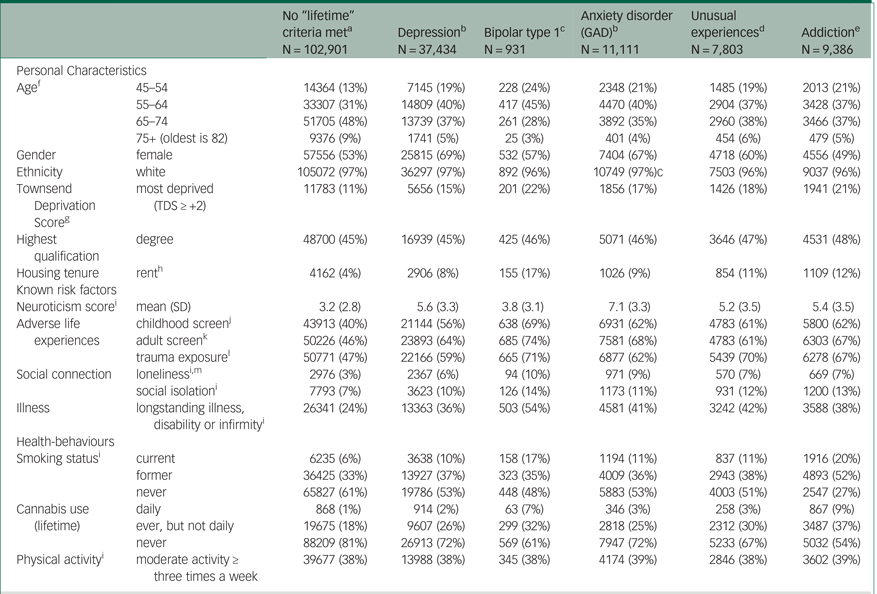It has recently come to our attention that the above paper contains an error. One of the variables in table 3 labelled “moderate activity ≥ three times a week”, and also referred to in the text as “Achieving recommended levels of physical activity”, was extracted incorrectly. Please see below an updated version of table 3 with the changes highlighted. The numbers of participants who are positive for this measure is much reduced, but our conclusion that there was no difference between the groups is unchanged.
Table 3 Socioeconomic factors by status for lifetime occurrence (people may be included in more than one category). See lettered table notes, and Appendix 2 for full case definitions

a) Criteria not met for depression, GAD, unusual experiences or addiction.
b) Criteria met for disorder on CIDI-SF lifetime.
c) Criteria met for both lifetime depression and lifetime mania.
d) Reported potential hallucination or delusion at any point in their life.
e) Positively endorsed: “Have you been addicted to or dependent on one or more things, including substances (not cigarettes/coffee) or behaviours (such as gambling)?”
f) Age when mental health questionnaire released, derived from date of birth.
g) Townsend material Deprivation Score is based on postcode areas.
h) Collapsed from categories in table 2.
i) From baseline assessment 2007–10.
j) Criteria met for possible abuse or neglect on Childhood Trauma Screener.
k) Criteria met for adverse situations as an adult: lack of confiding relationship, abusive relationships and money problems.
l) Reports one or more of six situations that are known to be triggers for trauma-related disorders.
m) There is some overlap between the adult screen and loneliness screen, which both ask about confiding relationships: adult screen includes lack of confiding relationship over the adult lifetime; loneliness includes lack of confiding relationship at the time of baseline assessment.
The authors apologise for this error.




eLetters
No eLetters have been published for this article.